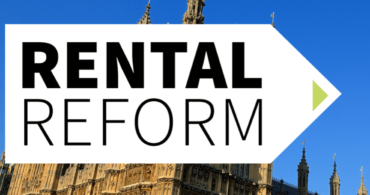How Buy-to-Let will be Impacted by a Shrinking Economy
Landlord, letting agent or estate agency, the COVID-19 crisis will have affected you in some way. For some, the effects will have been considerable, with the financial fallout of the pandemic at the heart of the problem. But does it have to be a problem? To what extent will buy to let actually be impacted by a shrinking economy?
Whether you’re a landlord, a letting agent or an estate agency, the COVID-19 crisis will have affected you in some way. For some, the effects will have been considerable, with the financial fallout of the pandemic at the heart of the problem. But does it have to be a problem? To what extent will buy to let actually be impacted by a shrinking economy?
The COVID-19 crisis has left many of the UK’s estimated 2.6 million buy-to-let landlords in a precarious situation, with swathes of tenants hit by wage reductions and redundancies. Whilst some landlords have been able to take advantage of coronavirus help schemes such as mortgage holidays, this has not proved possible for everyone. This uncertainty, combined with increasing regulatory pressures and dwindling tax breaks for landlords, has left many wondering whether their only option is to start selling up their portfolios.
However, for those landlords with cash to spend, there could well be investment opportunities on the horizon, especially with competition potentially diminishing, and demand for rental property on the up. So, as the economy faces a shrinking period, what is the outlook for the buy to let market? Let’s take a look.
There are two core factors in play as the financial impact of the pandemic kicks in:
- Firstly, in a financial crisis, demand for rental property tends to increase. In times of uncertainty, people often seek short-term flexibility when it comes to housing. Something that is of course offered by the rental market. In addition, it can be difficult to meet affordability criteria for home loans, so the alternative has to be rental.
- Secondly, rental values tend to drop when there’s a financial downturn, which of course means yield does too. Although this can be regional, as current figures may suggest. We’ll look at that shortly.
Resurgence in demand for rental property
Property website Zoopla looks at rental demand early on in the lettings process. They record their statistics at the point where prospective tenants get in touch with agents to enquire about particular properties they wish to rent.
Measured in this way, demand dipped substantially by over 55 per cent in March when lockdown was first brought in, some may say unsurprisingly. It did however see a resurgence in April and May, and is now running at a notable 30 per cent higher than March. Any property industry expert or letting agent will say that this is actually quite staggering.
Nigel Terrington, chief executive of buy-to-let mortgage lender Paragon Bank, labels the private rented sector “a release valve”, during times when the sales market slips into retrograde. He says that in a shrinking economy, people tend to veer away from purchasing property, and so in turn, rental demand increases.
First time buyers in particular will tend to hold back, either due to affordability issues or general nervousness, opting instead to rent, or stay with parents. Younger employees have been hit the hardest, with those under 25 some two and a half times more likely to be employed in an industry that has now shut down in the wake of the coronavirus pandemic, according to the Institute for Fiscal Studies.
Drop in rental value – but not everywhere
So, there is an increase in demand for rental property. However, is it buy to let still a viable option for investors? What of rental value and yield in a shrinking economy?
Until such times as lockdown measures are further eased, and government financial assistance schemes start to tail off, it is difficult to predict what might happen for the long term. Who knows how many jobs will remain? And whether salaries will fall? And this is the key consideration. Because historically, data demonstrates that as earnings drop, so rental growth goes in the same direction. This rings true in research by estate and letting agent Hamptons International, showing a 3.2 per cent fall in rents in London, and 2.4 per cent in the South East.
General opinion in the buy to let industry is that the majority of landlords will drop rents to keep tenants where they are, as opposed to dealing with the financial fallout of void periods in a shrinking economy. Any letting agent will usually suggest this strategy.
Predictions in some corners suggest there could be a drop of around 10 per cent in the coming months due to the increase in unemployment and falling income levels, which have a direct effect on affordability. However, the latest figures released from the Homelet Rental Index covering July show that the average rent for a new or renewed tenancy has increased by 1.4 per cent. But this is only when the elevated rents of London are excluded, because those are down 3.2 per cent on last year. So, it seems, different pictures for different parts of the country.
So then, for now, buy to let landlords are buoyed by the benefit of high demand, but depending on location, may be facing a drop in yield. But it is important to think about the long term view. Who knows how long the drop will last?
Thinking long term, buy to let could be worth the risk
For those unencumbered property investors with readily available funds, and the courage to take a risk, there could well be a few bargains. In a market where there are fewer buyers, and where there are less funding options, if you have cash ready to invest, you could be in a very strong position for the future. Especially if you look at ways of reducing your risk and maximising your investment, such as by renting to local authorities via a guaranteed rent scheme. Such schemes allow landlords to take a back seat when it comes to the day to day running of their rental investment, whilst enjoying fully optimised return on investment, together with fee-free guaranteed rent, even during void periods.
Any letting agent or property guru will tell you that a wise property investor will always favour the long term view. So, with the Stamp Duty holiday in place until 31 March 2021, the buy to let market could well be an attractive option for some.
homes2let: The Guaranteed Rent Scheme London Letting Agents and Landlords Know They Can Trust
Landlords and letting agents London wide are taking advantage of the homes2let guaranteed rent scheme. In times of uncertainty, peace of mind means everything, especially when it comes to ensuring your rent is paid in full, on time, every month. You can find out how it works right here. Alternatively, you are welcome to get in touch with our helpful and knowledgeable team.
Amongst us we have seasoned property investors with extensive experience, ready and waiting to provide you with the advice you need to make the right decisions for your future success. Landlord or letting agent, we are here to help.
Related Insights

What are the Repair and Maintenance Obligations of a Landlord?
In the private rented sector, landlords are generally expected to keep any property let to tenants well-maintained and in a good state of home repair. By the same token, tenants must ensure they act in a ‘tenant-like manner’, not causing damage to the property other than anything that can be classed as ‘fair wear and tear’.

Labour’s New Rental Reforms: A Seismic Shift And Five Solutions for UK Landlords
Labour's rental reforms are bringing major changes to the UK's private rental sector, aiming to enhance tenant rights but also creating challenges for landlords. These challenges include the end of no-fault evictions, indefinite tenancies, and rent increase restrictions, leading to uncertainty and potential financial implications for landlords. However, guaranteed rent agencies offer a solution by handling property management and providing a guaranteed rental income, ensuring compliance with new regulations and offering peace of mind to landlords in this changing landscape.

Landlords Encouraged to Seek Alternatives to High Rent Advance Demands
According to a Radio 5 podcast, increasing numbers of landlords are asking tenants with a poor credit score or lack of renting history to part with six months’ rent in advance. The situation has been made worse by the effects of the COVID-19 pandemic, with incomes hit hard. But the NRLA advises against demanding such high advances, suggesting that an alternative guaranteed rent solution is sought.







